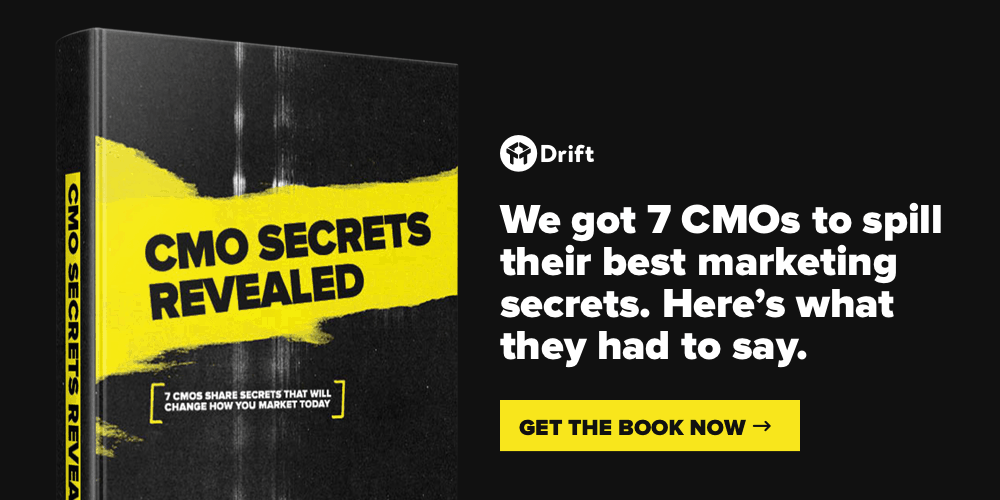
Content marketing has never been more “in” than it is right now.
Everyone is doing it, and for obvious reasons: it produces results.
The only issue is: millions upon millions of other people are fighting for the same traffic as you.
Everyday people are writing more and more blog content hoping to move up the SERPs and gain more organic traffic.
Repeating the same content process you’ve done for the last few years ain’t gonna cut it anymore.
Here’s why your content needs to change in 2020 and the top content marketing lessons to do just that.
Why Your Content Strategy Needs to Change in 2020
Content marketing is far from new, but thankfully, it’s still not oversaturated.
On the other hand, it’s saturated enough to the point that you need a high domain rating to rank for anything remotely competitive:

Anything remotely competitive is dominated by titans of the industry who have been around for 10+ years.
What can you do about it?
“So, just find long-tail keywords.”
This is a tidbit of advice you’ve probably heard and read more than you can count, right?
The only problem is that even long-tail terms or low volume terms are becoming saturated and difficult to rank for.
Case in point, this keyword with just 250 searches per month:

One glance at the SERP for this term shows this is likely a waste of time for most sites to attempt at competing:

Moz ranks first with a DR of 91 and 600+ backlinks from nearly 300 unique domains.
All that link juice and this term is only driving 143 visits per month.
The second SERP listing only generates 37 visits per month.
You get the point. Trying to write a better post and campaign for hundreds of links on this topic simply isn’t going to produce anything close to a return on investment.
It’s no longer as easy as finding that diamond in the rough keyword. The needle in a haystack term that’s going to skyrocket your organic visits and drive revenue.
These might still exist, but it could take months of heavy-duty keyword research to find.
The truth is: you aren’t Moz.
The good news is: you don’t have to be.
You just have to focus on different styles of content to build your brand and trust within your niche before you can attempt to rank for terms like this.
Here are the top content marketing opportunities to help you do just that in 2020.
1. Original Data / Research
Original research studies and data sets are some of the most valuable articles online today.
Whether you are a content marketer who needs data-backed info to write about or a social marketer looking for the next proven tactic, everyone needs data.
Data helps you make informed decisions on if a tactic will actually be worthwhile to you.
For instance, if new studies show that display ads only convert at 3% in the best of scenarios, you probably won’t be investing $10 million in display ads anytime soon.
Conversely, if you see a study showing that a certain social tactic nets 50% conversion rates on average..you get the point.
Original research and data is 2020’s infographic when it comes to link magnet content.
What does that mean?
Infographics used to be link home runs. Digestible, easy-to-consume content in the form of beautiful, catchy visuals. Everyone was making them and everyone was citing them.
Now, original research is the rave. Don’t believe me?
Check out the backlink profile from one recent study by Orbit Media:

Original research that your industry relates to is going to be successful.
So, how exactly can you ensure the research holds up to scrutiny, is accurate, and ties into your business offering?
Let’s take a look at one of the best industry studies out there on lead generation, from Venngage. Everybody wants more leads, but increasing your conversion rates isn’t always straightforward.
To help in this pain point, Venngage commissioned a huge study on their own dime, interviewing experts and compiling data from other reports, too.
This study starts off by giving us the good details immediately, without forcing people to read if they don’t want to:

Beyond just being a powerhouse of data on everything from content marketing to nurturing acquired leads, it features expert opinions to give deeper insights and new perspectives:

Meaning instead of just being a data source that tells you what works, experts show how they accomplish those steps and what other tactics can boost your conversions.
In addition, interviewing experts has some added benefits to the study beyond just value for the readers.
It also creates value for Venngage.
How?
That’s what I’ll cover in the next section on expert round-ups.
2. Expert Analysis Round-Ups
Remember that keyword I showed you earlier on International SEO? The one with just 250 searches per month, currently dominated by high DR sites like Moz?
Yeah, well take a look at 10th listed post:

With a domain rating of 48 and just 12 backlinks, they’ve cracked the top 10 on the first page competing against sites with nearly double their DR and 600+ more links.
How?
By doing something dramatically different than the other nine posts, while still providing tons of value and satisfying user intent via an expert analysis round-up.
Breaking down the post, they structure it just like most listicles and guides ranking for the term.
But, instead of just shouting out different tactics, they have influencer quotes and tips under each tactic, adding way more credibility, social proof for their brand, and ultimately more value for the reader:

So, why go through all of the effort to land round-ups with experts?
There are a few huge benefits here:
- You get to learn from experts and can improve your own strategy
- Your readers will love hearing directly from experts
- Experts give your brand instant credibility and social proof
- If you showcase experts in your piece, they are likely to circulate the content within their audience, potentially even linking to it on their website
- Interviewing allows you to build connections and form relationships
Convinced yet?
I knew you were. But, how do you do it? How do you get experts to respond to a cold email?
By starting realistically.
If you want to write a post about expert SEO tips, don’t expect to land interviews with Brian Dean of Backlinko or Neil Patel on the first go-round.
Instead, contact more available experts in the field for your first few round-ups. Then when it comes time to contact the bigger fish, you can showcase previous examples to get their interest and showcase that you can follow through with the project.
This shows that you aren’t wasting their time and energy, and that you aren’t just looking for a hand-out.
Expert round-ups are fantastic for nearly any level of experience / audience. Reading more opinions on tactics and subjects helps you improve.
Take advantage of this in 2020 and switch up your content style.
3. Build Your Brand Via Storytelling
People love a good story. A story that captivates them in a world of boring, dry content.
A story that provides actionable lessons, advice, and connects the reader to a brand or person.
Without these factors, your content is getting skimmed, hard.
Most content gets read for 15 seconds or less before people lose interest.
Delivery has become just as important as the actual quality of the information you deliver.
Enter: storytelling.
So, what does it look like in practice? How can you weave storytelling in with actionable advice? How can you avoid writing a short story that nobody cares about?
Personally, my favorite example actually comes from Drift. And no, I’m not biased. I’ve actually written about Drift’s Year Without Forms post on multiple occasions in publications like SEJ, HubSpot, and more.
I believe it’s one of the most inspiring content pieces to this date.

Let me break it down for you.
Drift, as you probably know, offers software to help you take advantage of conversational marketing via chat.
A few years ago when this was written, chatbots were all but dismissed as bogus marketing tactics that were going to die out. That gated content was here to stay, and forms would always dominate for converting traffic. That chat was just another fad.
Drift instead went against the grain, and put their own business model on the line:
Killing their forms and gated content in exchange for chat to see how it would impact conversions.
That’s about as gripping of a story as you can think of when it comes to a marketing business. Fail and their business idea is all but a wash. Succeed and they’ve proved their business model works.
It’s a story that you can’t help but read, follow, and support.
In the end, Drift ended up increasing conversions in comparison to forms and built an army of loyal customers along the way.
Your brand isn’t another listicle post. It’s content like this that takes readers on a journey while also teaching them new tactics to improve their own business.
Want to develop a story and study like this for your business?
Take some time to mind map your business:
What is the core value that you provide to customers? What roadblocks have you had to overcome? What tactics can you teach utilizing your business services or products to better the lives of potential customers? What case studies can you use to inspire your next post?
4. Content Marketing is More Than Top of The Funnel
We often get lost in the numbers when it comes to content marketing.
We fire up our preferred keyword research tool, or all of them, and look for the most popular topics with a moderate difficulty that we think we can rank for.
But generally, that traffic is far from converting.
Why? They are searching for basic terms with zero intent.
For example, if your new startup is struggling to close sales, you are likely to start a search for:
How to close more sales
This is a great first step, but it shows almost zero intent to buy anything or opt-in.
There is no direct tool, service, or product mention.
It’s a first step in the process of discovering the need for one of those tools, services, or products.
Sure, it’s going to have more volume than terms related to specific software, but the conversion rate will be almost zero.
Generally, digging deeper than top of the funnel (TOFU) keywords can help you appeal both to existing blog readers and convert more from less.
For example, take this post by PandaDoc, a sales proposal software:

Now we’re talking! While searches for “proposal software” are going to be far fewer than generalized sales tips, the traffic is primed for converting.
They’ve done the sales tip research and it’s lead them to software.
Software specifically designed to convert.
And that’s where PandaDoc makes their move, presenting themselves honestly against competitors to let the consumer make the final decision.
Content marketing doesn’t have to be just top of the funnel topics. It doesn’t (and shouldn’t) have to be limited to XX tips that billions of sites are targeting.
If you find your content lacking the ability to convert traffic, it’s time to attack more bottom of the funnel topics, too.
Conclusion
Content marketing is no longer as simple as writing an XX tips post and calling it a day.
Millions of other bloggers are competing for those same terms, impacting your ability to rank and drive traffic.
In 2020, don’t fall behind repeating the same SEO strategies that worked five years ago.
Instead, break ground with content that actually drives results.
Content like original research, expert analysis round-ups, bottom of the funnel posts, and storytelling pieces that build your brand and attract loyal followers.
Want more pro tips? Check out our new book featuring seven secrets from CMOs that will change how you market today.
Jeremy is a Co-Founder of uSERP, a digital brand mention agency. He’s also the CMO at Wordable, a tool that directly exports content to CMS’. His expertise has been featured in Entrepreneur, ReadWrite, Foundr Magazine and hundreds more.
Editor’s Note: This is a guest post. Interested in contributing content to the Drift blog? Email Molly Sloan at msloan@drift.com.







